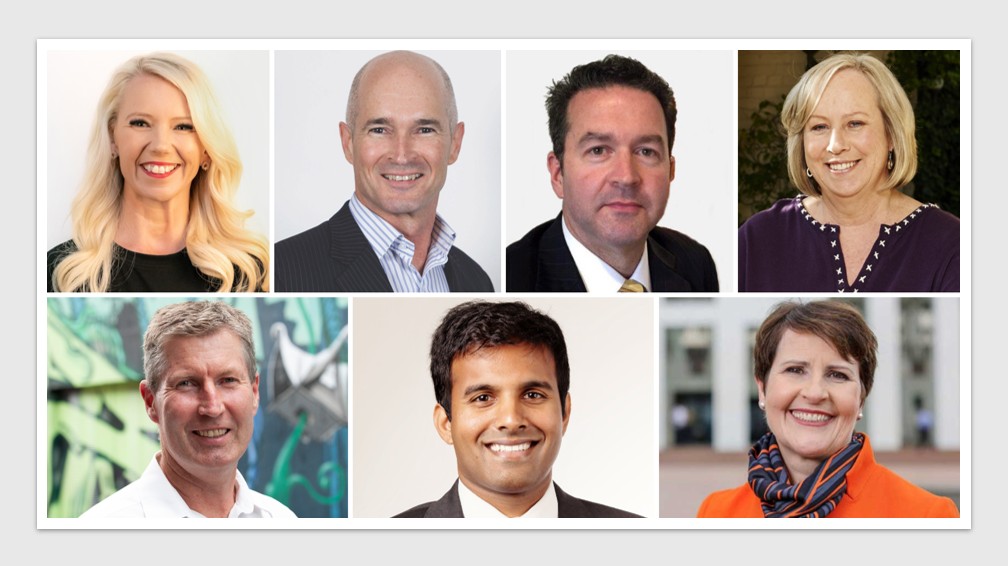News - Pharmaceuticals
Vaccine policy’s dangerous detour: Steering public health off course

Two leading academics are raising the red flag on a seismic shift in the vaccine landscape, one that threatens to unravel decades of progress in public health.
Over the past 50 years, vaccines have saved an estimated 154 million lives worldwide. Yet in the United States, both access to vaccines and public confidence in their safety are being systematically undermined, not by fringe conspiracy theorists online, but from within the highest levels of government.
Christina Pagel, Professor of Operational Research and Director of the UCL Clinical Operational Research Unit at University College London, together with Sheena Cruickshank, Professor of Immunology at the University of Manchester, have closely examined these developments with consequences extending to other countries, including Australia.
In January 2025, Robert F. Kennedy Jr., was appointed US health secretary. Despite his Senate confirmation hearings where he insisted, he was “not anti-vaccine” and pledged to uphold scientific standards, his subsequent actions tell a starkly different story.
According to Professors Pagel and Cruickshank, Kennedy has orchestrated a “sweeping assault” on the vaccine infrastructure: dismantling oversight committees, casting doubt on well-established science, politicising ingredient safety, restricting vaccine access, and slashing research funding.
At the heart of US vaccine policy lies the Advisory Committee on Immunisation Practices (ACIP), responsible for evidence-based vaccine recommendations. Until recently, ACIP comprised experts in immunology, epidemiology, and infectious diseases.
But in May 2025, Kennedy overrode ACIP’s recommendation on COVID-19 vaccination for pregnant women and young children. The following month, he disbanded the 17-member committee, citing alleged conflicts of interest. He replaced it with a smaller panel including individuals with documented anti-vaccine views, breaking decades of precedent.
For the first time, ACIP members were handpicked by the health secretary without standard vetting, training, or safeguards to ensure independence. The ousted members warned of “seismic disruption” to the vaccine recommendation process in a New England Journal of Medicine commentary published in July. In August, Kennedy banned respected scientific societies from advising ACIP, accusing them of bias.
Meanwhile, Kennedy has revived long-settled debates. He has called for “reassessment” of the childhood vaccine schedule, vaccine ingredients, and even entertained the thoroughly debunked claim linking the MMR vaccine to autism.
At ACIP’s first meeting under new leadership, Kennedy’s panel reviewed thimerosal, a mercury-based preservative used in some flu vaccines. CDC scientists, prepared to present their evidence, were excluded from the agenda. Instead, Lyn Redwood, a vaccine critic and co-founder of the World Mercury Project, was the sole presenter. Redwood’s presentation led to the ban of thimerosal from flu vaccines, a decision Kennedy expanded to all US vaccines.
Though thimerosal was already scarcely used, its removal based on flawed evidence and limited expert input sets a dangerous precedent.
Kennedy has also targeted aluminium hydroxide, a common vaccine adjuvant used to boost immune response. His review article contradicts a large body of peer-reviewed evidence affirming its safety. Aluminium salts are present in vaccines for hepatitis A and B, meningococcal disease, and tetanus.
The ripple effects extend beyond oversight. In July, ACIP announced it would review recommendations for childhood vaccines, including hepatitis B at birth and the MMRV combination vaccine, which protects against measles, mumps, rubella, and chickenpox. Weakening these guidelines influence vaccine coverage.
Kennedy has also targeted the Vaccine Compensation Program, which provides payouts for rare adverse effects while protecting vaccine supply from litigation. He is considering expanding eligibility to include autism, despite overwhelming consensus rejecting any link, and may permit more lawsuits, moves that could deter pharmaceutical companies from offering vaccines in the US and subsequently to other countries.
He insists all new vaccines undergo fresh placebo-controlled trials, overlooking that such standards already apply. Only modified versions, like annual flu shots, are currently exempt for ethical reasons.
If Kennedy bans widely used ingredients like aluminium salts, pharma companies may be forced to reformulate vaccines, triggering unnecessary clinical trials and delaying booster access.
In May, Moderna withdrew its application for a combined COVID-flu vaccine, citing regulatory hurdles. Shortly after, Kennedy’s department cancelled $700 million in funding for a Moderna bird flu vaccine, followed by cuts to HIV vaccine research and mRNA platforms for cancer prevention. While other countries continue vaccine innovation, the US’s retreat leaves a critical gap.
Perhaps most concerning is the messaging. Kennedy has repeatedly questioned the need for childhood vaccines, spread misinformation, exaggerated risks, and downplayed the threat of measles.
He has attacked medical journals as corrupt and threatened to bar government scientists from publishing in prestigious outlets like The Lancet and The New England Journal of Medicine. Instead, he proposes state-run alternatives. Notably, his own review on aluminium hydroxide was published in a non-peer-reviewed journal.
In just months as health secretary, Kennedy has reshaped vaccine policy and public trust. He has repeatedly claimed that the scientific and medical establishment is corrupt and that consensus cannot be trusted. This rhetoric is especially dangerous amid falling vaccine uptake, including in Australia, which increases the risk of disease outbreaks.
“Kennedy has shown both determination and ingenuity in undermining vaccine science, often through methods that are complex, obscure, or hard to explain publicly. Without issuing a single ban, he has weakened the foundations of vaccine availability and trust in the US.,” warned Professors Pagel and Cruickshank.
In the 19th century, countless children died from infections now preventable by vaccines. In an era when the deadly reality of diseases like measles has faded from collective memory, the prospect of sliding back toward a pre-vaccine world is a chilling warning.
![]() In reimagining healthcare across the entire patient journey, Health Industry HubTM is the only one-stop-hub uniting the diversity of the Pharma, MedTech, Diagnostics & Biotech sectors to inspire meaningful change.
In reimagining healthcare across the entire patient journey, Health Industry HubTM is the only one-stop-hub uniting the diversity of the Pharma, MedTech, Diagnostics & Biotech sectors to inspire meaningful change.
The Health Industry HubTM content is copyright protected. Access is available under individual user licenses. Please click here to subscribe and visit T&Cs here.
News - MedTech & Diagnostics

Stakeholders scrutinise Productivity Commission’s ‘Quality Care’ report ahead of Economic Reform Roundtable
In the lead-up to the government’s Economic Reform Roundtable, scheduled for 19 to 21 August, the Productivity Commission has released […]
MoreLeadership & Management

Menarini names first female to lead ANZ business
Menarini has shattered a glass ceiling in Australia and New Zealand, appointing its first-ever female General Manager, Kelly Turner. The […]
MoreNews - Pharmaceuticals

BeiGene ANZ adopts BeOne Medicines in major rebrand
Over the past few years, a wave of rebranding has swept the pharma and biotech sector. In this context, BeiGene […]
MoreMedical and Science

Novo Nordisk launches Prize to spotlight the next generation of women in science
Novo Nordisk has launched the Marie Krogh Young Women in Science Prize, opening applications to early and mid-career women in […]
More